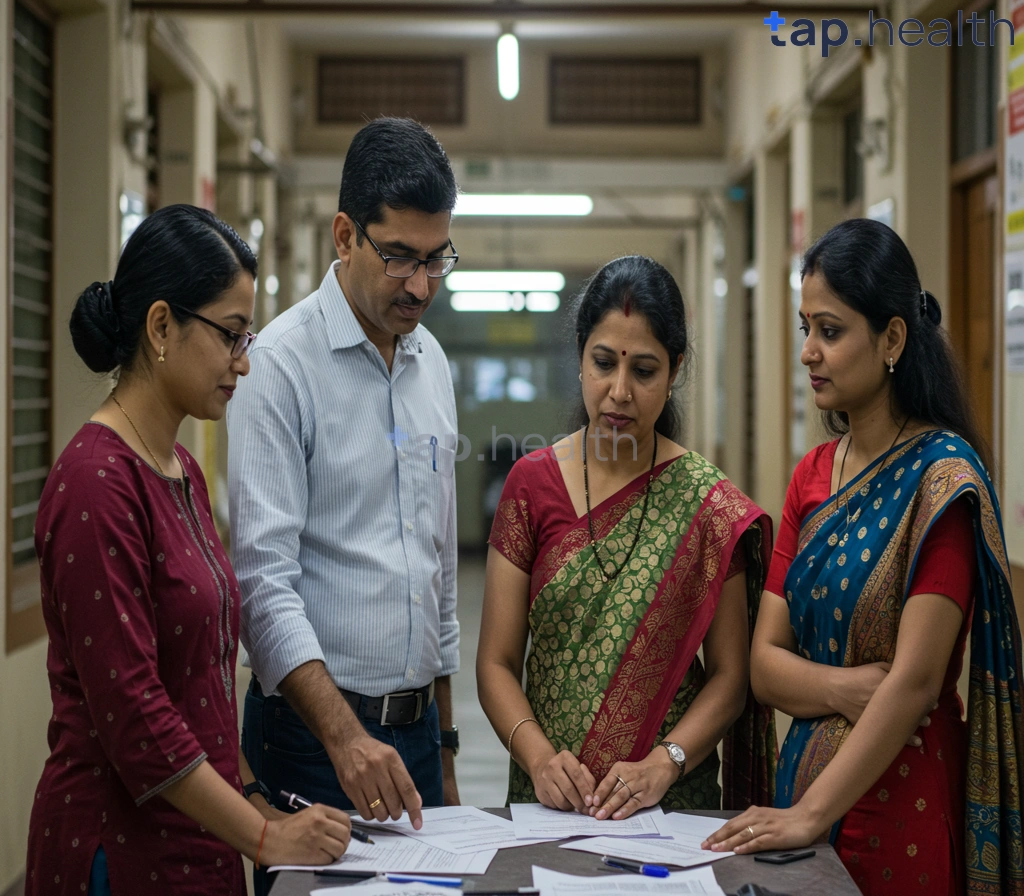Table of Contents
- Advancing Research in Diabetes and Metabolism
- Nutritional Strategies for Metabolic Health
- Endocrinology Research: Latest Discoveries
- How to Improve Metabolic Health Through Nutrition
- Guide to the Latest in Endocrinology Research
- Frequently Asked Questions
- References
Ever wondered about the cutting-edge breakthroughs shaping our understanding of how our bodies process energy? This blog is dedicated to Advancing Research in Endocrinology, Diabetes, Metabolism, and Nutrition, exploring the latest discoveries and innovations in these vital fields. We’ll delve into fascinating studies, examine the implications for patient care, and discuss the future directions of research in these interconnected areas. Get ready to unravel the complexities of hormonal balance, metabolic processes, and nutritional strategies – it’s a journey into the science of well-being!
Advancing Research in Diabetes and Metabolism
The global diabetes crisis is alarming, especially its impact on the working-age population. A staggering 61% of those living with diabetes are between 20 and 64 (source), a figure particularly poignant in rapidly developing nations like India and other tropical countries. These nations are experiencing a perfect storm of economic growth, lifestyle changes, and a soaring diabetes prevalence. This necessitates a serious, focused research push.
Understanding the Regional Challenges
In India and similar regions, the diabetes surge is a complex issue. Genetic factors undoubtedly play a role, but the shift towards processed foods and increasingly sedentary lifestyles is a major driver. Imagine this: a family’s traditional diet of fresh vegetables and whole grains is replaced by readily available, energy-dense snacks and sugary drinks. This, coupled with limited access to affordable healthcare and diabetes management, creates a significant hurdle. The strong link between diabetes and obesity – explored in detail here: Understanding the Link – further complicates the picture.
Prioritizing Research Initiatives
Tackling this requires a multifaceted approach. We desperately need cheaper, more accessible diagnostic tools, especially for resource-constrained areas. Research into preventative measures and lifestyle changes is crucial, alongside novel treatment strategies. We also need to understand the unique metabolic responses of tropical populations, allowing for targeted interventions. Even exploring the potential of traditional medicine and dietary practices offers exciting avenues. Technology also holds immense promise; check out this article for insights.
Call to Action for Regional Researchers
The urgency is undeniable. We need researchers and healthcare professionals in these regions to prioritize innovative, regionally tailored studies. Collaboration is key – between researchers, healthcare providers, and policymakers – to translate research into real-world impact. By focusing on the specific needs of these communities, we can dramatically improve the lives of millions battling diabetes and related metabolic disorders.
Nutritional Strategies for Metabolic Health
Understanding Carbohydrate Intake in Tropical Climates
Managing your blood sugar, especially if you have diabetes, takes a smart approach to food, particularly in hot, humid places like India. While the general advice is 45-60 grams of carbs per meal (this varies!), life in a tropical climate adds another layer. The heat and sweating change how much energy you use and how much fluid you need, so your carb needs might be different than someone in a cooler climate. Think of it like this: you’re burning more calories just staying cool!
Tailoring Your Diet: Region-Specific Considerations
Embrace local, fresh produce! Think vibrant, fiber-rich fruits and veggies. They help stabilize blood sugar far better than processed carbs. And don’t underestimate the power of traditional Indian spices! Turmeric and ginger, for example, have amazing anti-inflammatory benefits that can support your overall health. Lentils and legumes are also fantastic sources of fiber and help keep blood sugar levels steady. But remember, everyone’s different. A registered dietitian or diabetologist can create a personalized plan that works for you and your lifestyle. Want a deeper dive into managing triglycerides? Check out Nutritional Strategies for Lowering Triglycerides.
Actionable Steps for Better Metabolic Management
- Choose whole grains: Swap white rice and refined flour for brown rice, millets, and whole wheat.
- Lean protein: Focus on fish, poultry, and legumes.
- Hydration is key: Drink plenty of water, especially in the heat.
- Move your body: Regular exercise is crucial for blood sugar control.
- Seek expert advice: A healthcare professional familiar with managing diabetes in tropical climates can provide the most effective guidance. For athletes, How Can You Optimize Your Diet for Athletic Performance? offers great tips adaptable for overall metabolic health.
Endocrinology Research: Latest Discoveries
The fight against diabetes and its intertwined relationship with metabolic health is a global battle, especially urgent in tropical regions like India. A staggering statistic jumps out: over 60% of Indians with diabetes also have high blood pressure. This isn’t just a number; it represents millions facing a double whammy of health challenges. This urgent reality demands a deeper understanding of how these conditions interact, particularly within the unique context of tropical climates. Think of it like this: it’s not just one puzzle piece, but a complex interplay of genes, lifestyle, and environment that we need to solve.
Addressing the Diabetes-Hypertension Link in India
Researchers are tackling this complex issue head-on. We’re moving beyond broad strokes and focusing on the specifics – pinpointing genetic markers common in the Indian population and exploring how diet, stress, and even healthcare access influence risk. Imagine the power of large-scale studies combined with cutting-edge genomic analysis! This data, including valuable contributions from the International Diabetes Federation (here), is crucial for crafting effective public health strategies. For a closer look at how diet impacts endocrine health, our article on Dairy and Thyroid Disorders offers valuable insights.
Future Directions in Endocrinology Research
The future of diabetes and hypertension management is undeniably personalized. We need treatments and interventions tailored to the specific needs and cultural contexts of tropical populations. This means culturally sensitive approaches and ensuring everyone has access to proper diagnosis and effective treatment – no exceptions. Ultimately, success hinges on collaboration: researchers, doctors, policymakers – all working together. Only then can we translate research breakthroughs into tangible improvements in people’s lives. The promise of future endocrine research is a brighter, healthier future for millions. For more on related medical topics, explore our Health Blog.
How to Improve Metabolic Health Through Nutrition
The Impact of Sugar on Metabolic Health in Tropical Climates
Let’s talk sugar – specifically, its sneaky impact on our metabolic health, especially in warmer climates like India. Research shows a concerning link: daily sugary drinks increase your diabetes risk by a whopping 26%! Think about it – the heat often makes us crave refreshing beverages, and sugary options are readily available. This is further complicated by the naturally high sugar content in many tropical fruits. Navigating this requires a mindful approach.
Practical Steps for Better Metabolic Health
Improving your metabolism isn’t rocket science, but it does demand a holistic strategy. Start by focusing on whole, unprocessed foods. Think vibrant, local produce – the delicious mangoes, papayas, and leafy greens abundant in many tropical regions. Next, significantly reduce sugary drinks. Swap that soda or juice for water, unsweetened tea, or infused water. It’s a small change with a big impact. Finally, incorporate regular exercise, ideally during cooler parts of the day.
Learn more about how nutrition fuels your gut microbiome and overall health in our article: How Nutrition Impacts Gut Health and the Microbiome – Tap Health.
Empowering Change in Your Community
Listen to your body! Pay attention to how different foods make you feel. Consider consulting a nutritionist familiar with the unique dietary challenges of your region. Promoting healthy habits within your family and community is incredibly powerful. Imagine the ripple effect – healthier families lead to healthier communities, significantly impacting the alarmingly high diabetes rates. Preventing chronic diseases starts with these small, sustainable changes.
For more information on preventing chronic diseases through nutrition, check out: How Does Nutrition Play a Role in Preventing Chronic Diseases?
Guide to the Latest in Endocrinology Research
Understanding the Growing Burden of Metabolic Disorders
India is grappling with a metabolic health crisis. 2.5 million cases of gestational diabetes annually – that’s a staggering number. It highlights the urgent need for cutting-edge research in endocrinology, diabetes, and metabolism, especially tailored to the unique challenges of tropical climates and developing nations. We need research that digs deep into the specific risk factors and prevention strategies relevant to these regions – the interplay between genes, lifestyle, and environment is critical here.
The sheer volume of gestational diabetes cases highlights the need to better understand and manage conditions like hypertension during pregnancy (Hypertension and Pregnancy: What You Need to Know), which can dramatically impact pregnancy outcomes.
Emerging Trends in Research and Treatment
The good news? Research is exploding with innovative ideas. Personalized medicine, tailored to individual genetic profiles and lifestyles common in India and other tropical countries, is showing immense promise. We’re seeing exciting studies exploring the potential synergy between traditional medicine and modern treatments – a blend of ancient wisdom and cutting-edge science. Plus, advancements in diagnostics are leading to earlier detection, enabling faster interventions and better patient outcomes.
The focus is shifting towards prevention, emphasizing nutritional interventions and lifestyle adjustments that are culturally relevant and sustainable. Understanding how nutrition impacts hormone regulation, particularly for conditions like PCOS and its effect on pregnancy (Regulate Hormones with Nutrition for PCOS and Pregnancy Health), is becoming increasingly central to effective management.
The Path Forward: Collaboration and Innovation
Tackling this challenge needs a multi-faceted approach. Strong collaborations between Indian institutions and global research centers are crucial for sharing knowledge and expertise. Investing in research infrastructure and training the next generation of endocrinology specialists within India and other tropical countries is vital for long-term improvements.
By focusing on region-specific needs and implementing effective public health programs, we can start to truly make a difference in the fight against metabolic disorders. It’s a journey that demands collaborative effort and innovative solutions, but one we can, and must, achieve.
Frequently Asked Questions on Endocrinology, Diabetes, Metabolism, and Nutrition
Q1. What is the main focus of research on diabetes and metabolism in tropical regions like India?
Research focuses on addressing the alarming rise in diabetes, particularly among the working-age population. This involves developing affordable diagnostic tools, researching preventative measures and lifestyle changes, exploring novel treatment strategies tailored to the unique metabolic responses of these populations, and investigating the potential of traditional medicine.
Q2. How can I improve my metabolic health through nutrition in a tropical climate?
Prioritize whole, unprocessed foods like fresh fruits, vegetables, and whole grains. Significantly reduce sugary drinks. Increase your intake of lean protein and healthy fats. Stay well-hydrated. Incorporate regular exercise, and consult a registered dietitian or diabetologist for personalized guidance, considering the impact of heat and increased fluid needs.
Q3. What is the link between diabetes and hypertension, and how is research addressing this in India?
Studies show a high correlation between diabetes and hypertension in India. Research is investigating genetic markers, dietary habits, stress levels, and healthcare access to understand this complex relationship. Large-scale studies combined with genomic analysis aim to inform effective public health strategies.
Q4. What are the latest advancements and future directions in endocrinology research related to diabetes?
Advancements include personalized medicine tailored to individual genetic profiles and lifestyles. Research is exploring the synergy between traditional and modern treatments. There are improvements in diagnostics enabling earlier detection and interventions. The focus is shifting towards prevention through culturally relevant and sustainable nutritional and lifestyle changes.
Q5. What is the role of collaboration and innovation in tackling metabolic disorders in tropical regions?
Collaboration between researchers, healthcare providers, and policymakers is crucial to translate research into real-world impact. Investment in research infrastructure and training the next generation of specialists is vital. Region-specific public health programs are needed to effectively address the unique challenges of these areas.
References
- Electronic Health Records-Based Data-Driven Diabetes Knowledge Unveiling and Risk Prognosis : https://arxiv.org/pdf/2412.03961
- A Practical Guide to Integrated Type 2 Diabetes Care: https://www.hse.ie/eng/services/list/2/primarycare/east-coast-diabetes-service/management-of-type-2-diabetes/diabetes-and-pregnancy/icgp-guide-to-integrated-type-2.pdf





